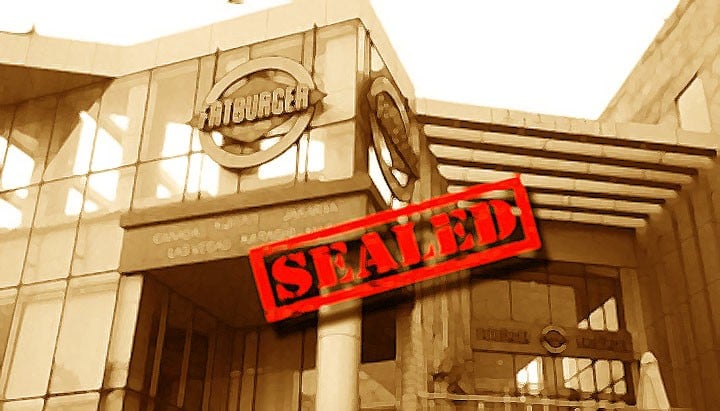
The investigative efforts of the PFA team have provided the country with some comic relief

Greetings from the currently infamous food capital of Pakistan!
Dear Lahori foodies, I am with you in these trying times. And, trying times these are indeed for the restaurant-hoppers. Alas, Ayesha Mumtaz and her team have robbed us of cheeky comebacks.
We can no longer laugh away dirty dishes or the chance fly in restaurant food since the electronic media, print media, and even social media have adopted Ms Mumtaz’s cause and are ensuring that those not closely following the daily updates on the Punjab Food Authority’s web page are treated to images revealing the standards of cleanliness, or lack thereof, at the majority of Lahore’s most popular food joints.
But, as with every difficult situation, there is a silver lining amongst the discovery of rotten meat and vegetables being served in restaurants. The investigative efforts of the PFA team have provided the country with some much-needed comic relief. Horror at rising living costs ahead of Eid-ul-Azha was matched by public disgust at the food industry as the collective imagination reeled at the probability that Lahore had been consuming donkey meat masquerading as mutton and beef. Jokes and memes still abound on social media about the source of meat being supplied in Lahore. The more exclusive the restaurant, the louder the derision and laughter at its fall from grace.
Amusingly, the sound of laughter coming from our capital city at the predicament of the Lahorites has lessened considerably since seventeen of Islamabad’s most posh restaurants were fined and sealed for similar offences.
Jokes apart, food is serious business and consuming stale and unhygienic foodstuff can create serious health complications.
Food also translates into big money in Pakistan. Ayesha Mumtaz deserves all the applause she has been receiving for daring to question the ethics of the food industry. One can almost imagine all the restaurateurs lamenting ‘along came an Ayesha, and frightened all the customers away.’
Agreed that restaurants are a lucrative business but the protest by the restaurateurs at the Lahore Press Club against the PFA inspections left a worse taste in the mouth than all the images of dirty freezers and uncovered kitchen drains uploaded online did. Isn’t it the first rule of business to learn about the SOPs for any venture? Why do restaurant managers require the PFA to inform them about the basic criteria before the inspections? Why is it so difficult to comprehend and admit that proper labelling, fresh ingredients, and cleanliness are the age-old universal standards for any cooking space, whether it is private or commercial? How much profit does dish washing detergent and gloves for the kitchen staff eat up? And yes, both essentials have been found missing in quite a few of Lahore’s well known restaurants. After all, who are we, the consumers, to ask about something as fancy as health certification for those involved with the cooking and serving of food?
Grim times for the restaurant scene, indeed. Since the segment of society that can afford to enjoy meals at restaurants is the one which has the easiest access to the all-knowing internet, social media has become the food industry’s bane. So much so that the Lahore High Court recently ordered the PFA to refrain from posting pictures of its raids in response to a petition filed by the Lahore Hotels and Restaurants Association.
Oh, well. The implementation of checks and balances on the flourishing food industry in Lahore always did seem too good to last. Maybe that is why, despite being aware of the dubious kitchen conditions of almost all the eateries in Lahore, the affluent and now no-longer ignorant are continuing to patronise the said restaurants. Is it Lahoris’ legendary love of food or another manifestation of the national resignation to the state of affairs in the country? I will leave you to ponder over that while I order a beef burger that just might be made of horse meat.